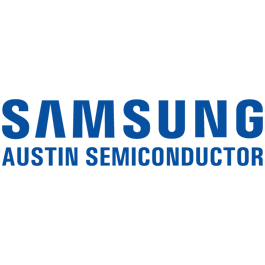
Helping Samsung Save Water and Improve Operations in Texas
Insight
Precise temperature and humidity control are essential to the semiconductor fabrication process, which is why these facilities have large chiller operations. They also consume significant amounts of Ultra Pure Water (UPW) and generate substantial wastewater.
High-volume water consumption can present significant challenges in water-stressed areas such as Austin, Texas, where Samsung operates one of North America’s largest chip fabrication plants. It has 45,000 tons of chilling capacity and 34 chillers connected to two cooling towers. The challenge for this technology provider? To ensure reliable production climate control while reducing the plant’s water footprint and protecting its assets.

Samsung’s Austin plant produces chips that go into mobile devices. 3D TRASAR™ Technology has helped the plant dramatically reduce its water use, control corrosion and microbial growth, and optimize its operations.
Innovation
Given its location in a water-scarce region, the Samsung facility had to increase operational reliability while optimizing water use. To support those goals, Nalco Water conducted a detailed analysis and
implemented 3D TRASAR™ Technology, addressing key areas of improvement.
The solution benefits include:
- Real-time notification of changing conditions
- Detailed modeling and optimization of water sources so the facility managers could better understand the impact of improved flow management of the different streams
- 24/7 automation to enable immediate response to scaling or corrosion
- Technology to identify and control Key Process Indicators (KPIs) to minimize the risk of downtime or disruptions
The successful 3D TRASAR installation delivered on its promises and enabled Samsung to achieve its objectives — water reduction, corrosion and microbial control, and optimization of its operations.
Annual Savings
WATER
73.8 million
gallons saved — equivalent to the annual drinking water needs of more than
255,000 people
$73,781
in water savings
$36,895
in sewer savings
ASSETS
$1.6 million
saved in reduced maintenance and equipment replacement
Total Cost Savings
$1.7
MILLION
ANNUALLY


